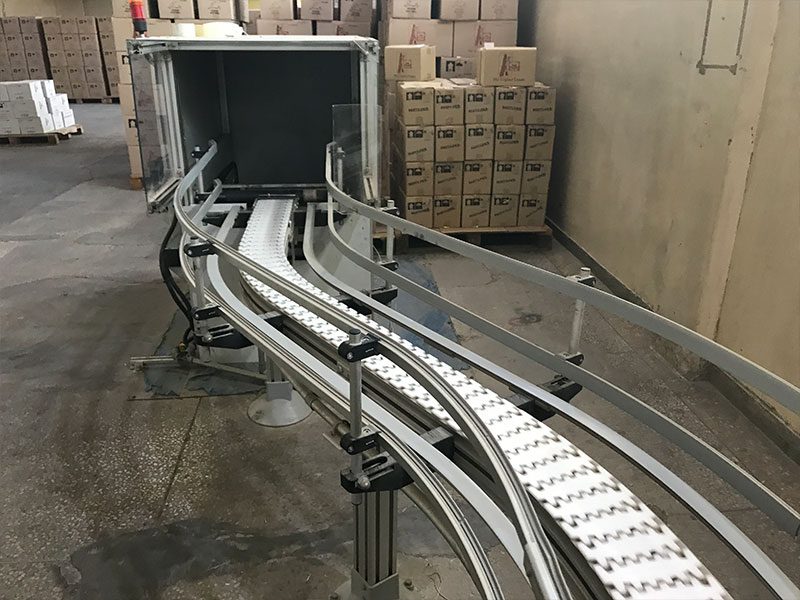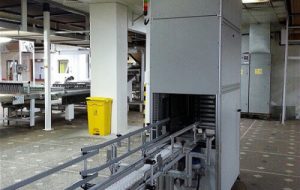Industrial Continuous Elevator
Introduction:
In the realm of industrial operations, the role of elevators is paramount. Among the various types of elevators, industrial continuous elevators stand out for their efficiency and reliability. These elevators are designed to handle the continuous movement of materials within industrial settings, ensuring seamless operations and enhanced productivity.
Importance of Industrial Continuous Elevators:
Industrial continuous elevators play a crucial role in streamlining material handling processes in various industries. By providing a continuous flow of materials from one point to another, these elevators facilitate smooth operations and optimize workflow efficiency.
Types of Continuous Elevators:
Belt Conveyors:
Belt conveyors are a popular type of industrial continuous elevator that use belts to transport materials horizontally or at an incline. They are versatile and can handle a wide range of materials, making them ideal for diverse industrial applications.
Bucket Elevators:
Bucket elevators are another common type of industrial continuous elevator that use buckets to transport materials vertically. They are well-suited for lifting bulk materials such as grains, powders, and aggregates in a continuous manner.
Screw Conveyors:
Screw conveyors are efficient industrial continuous elevators that use rotating helical screws to move materials along a fixed path. They are particularly useful for transporting materials that are free-flowing or semi-fluid.
Working Principle
Industrial continuous elevators operate on the principle of continuous movement, where materials are constantly transported from one point to another without interruptions. This seamless flow is achieved through the use of specialized mechanisms such as belts, buckets, or screws, depending on the type of elevator.
- Enhanced Efficiency
- Increased Productivity
- Reduced Labor Costs
- Improved Safety Standards
- Minimized Material Loss

Applications of Industrial Continuous Elevators:
Industrial continuous elevators find applications in a wide range of industries, including:
- Agriculture
- Manufacturing
- Mining
- Food Processing
- Construction
Factors to Consider When Choosing an Industrial Continuous Elevator:
When selecting an elevator for a specific application, it is essential to consider factors such as:
- Material Type
- Throughput Capacity
- Operating Environment
- Maintenance Requirements
- Cost.
Innovations in Continuous Elevator Technology:
The field of continuous elevator technology is constantly evolving, with innovations such as:
- Automation and Control Systems
- Energy-Efficient Designs
- Advanced Safety Features
- IoT Integration
- Predictive Maintenance Solutions
Challenges Faced in Operating:
Despite their numerous benefits, elevators may encounter challenges such as:
- Material Spillage
- Equipment Wear and Tear
- Conveyor Belt Misalignment
- Overloading
- Power Outages
Safety Measures for Industrial Continuous Elevators:
Ensuring the safety of personnel and equipment is paramount when operating industrial continuous elevators. Safety measures include:
- Proper Training for Operators
- Emergency Stop Systems
- Guardrails and Safety Barriers
- Regular Safety Inspections
- Compliance with Industry Standards
Environmental Impact of Elevators:
Industrial continuous elevators can have both positive and negative environmental impacts. While they help optimize material handling processes and reduce waste, they also consume energy and may contribute to air pollution. Implementing eco-friendly practices and using energy-efficient designs can help mitigate these effects.
Future Trends in Continuous Elevator Design:
The future of continuous elevator design is likely to be shaped by trends such as:
- Integration of AI and Machine Learning
- Modular and Scalable Designs
- Sustainable Materials and Manufacturing Practices
- Enhanced Connectivity and Data Analytics
- Customization for Specific Industry Needs
Case Studies of Successful Implementations:
Several industries have benefited from the implementation of industrial continuous elevators. Case studies showcasing successful projects highlight the positive impact of these elevators on operational efficiency, cost savings, and overall productivity.
Maintenance Tips :
Proper maintenance is essential to ensure the smooth operation and longevity of industrial continuous elevators. Some maintenance tips include:
- Regular Inspection
- Lubrication of Moving Parts
- Cleaning of Belts and Buckets
- Alignment Checks
- Training of Operators
You ask, we answer
Industrial continuous elevators offer benefits such as enhanced efficiency, increased productivity, and reduced labor costs.
- Challenges such as material spillage, equipment wear and tear, and conveyor belt misalignment can impact the operation of industrial continuous elevators.
- Regular maintenance is essential to ensure the smooth operation and longevity of industrial continuous elevators, minimizing downtime and preventing costly repairs.
- By implementing eco-friendly practices and using energy-efficient designs, industrial continuous elevators can help reduce waste and minimize their environmental footprint.
Ready to Improve your Production? Get a quote now!
Industrial continuous elevators represent a critical component of modern material handling systems, offering efficiency, reliability, and versatility across various industries.
By leveraging advancements in technology, embracing sustainable practices, and prioritizing safety and compliance, businesses can harness the full potential of continuous elevators to drive operational excellence and achieve their production goals.

